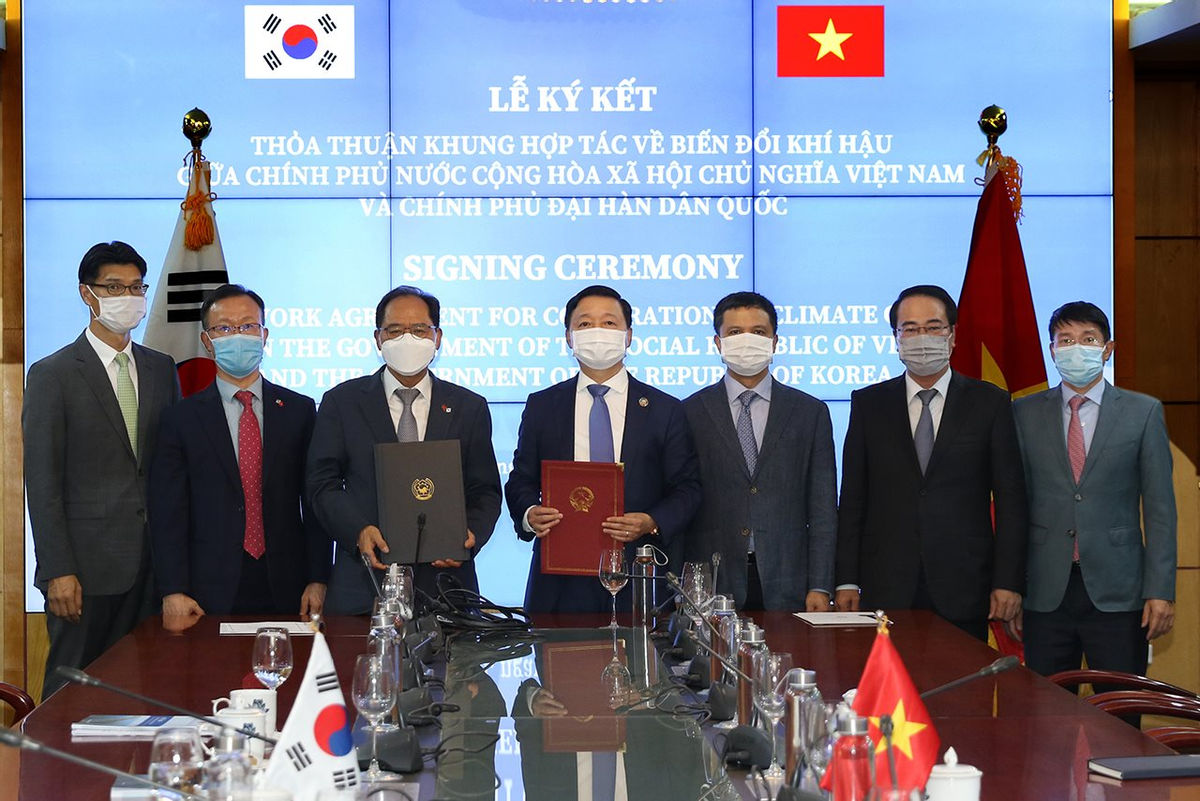(13th Congress) - The cooperation framework agreement on
climate change will be the legal basis for agencies and organizations of
Vietnam and the Republic of Korea (RoK) to implement climate change response
activities, and promote the transfer and receipt of greenhouse gas emissions
reduction technologies in the two countries.
On May 31, on behalf of the Vietnamese and Korean Governments, Vietnamese Minister of Natural Resources and Environment Tran Hong Ha and Korean Ambassador to Vietnam Park Noh-wan signed a framework agreement for cooperation on climate change.

At the signing ceremony (Photo: baotainguyenmoitruong.vn)
The signing of the agreement took place in the context of the RoK organizing the Partnering for Green Growth and the Global Goals 2030 (P4G) Summit. At the same time, the two countries are also preparing to attend the United Nations Conference on Climate Change, which will take place in the United Kingdom in November.
At the signing ceremony, Minister Tran Hong Ha and Ambassador Park Noh-wan said that in recent years, Vietnam and the RoK have cooperated in many fields such as hydrometeorology, environment and water resources. They agreed that the signing of this agreement will deepen the cooperative relationship and enrich the partnership between the two Governments and peoples.
This will be the legal basis for agencies and organizations of the two countries to implement climate change response activities, and promote the transfer and receipt of greenhouse gas emissions reduction technologies in the two countries. At the same time, relevant agencies also contribute to the global joint effort to respond to the climate emergency for the sake of sustainable development.
According to Minister Tran Hong Ha, the Vietnamese Ministry of Natural Resources and Environment will assume the prime responsibility for, and coordinate with Vietnamese ministries, branches and partner agencies of the RoK to effectively implement the agreement, and propose specific cooperation activities that meet the practical requirements and priorities of the two countries.
The Minister hoped that Ambassador Park Noh-wan would be a bridge for the Vietnam-RoK cooperation relationship to develop further, to fit the potential and expectations of the two countries.
The climate change cooperation framework agreement between the two Governments aims to strengthen the capacity of the parties to reduce and eliminate greenhouse gas emissions and adapt to the adverse effects of changing climate, thereby facilitating the economic transition of the parties towards low carbon emissions and climate change resilience.
Areas of cooperation under the agreement include reducing or eliminating greenhouse gas emissions in potential areas of cooperation, including industry, energy, transportation, construction, waste management , agriculture and forestry; cooperation in climate-related science and technology including modeling, forecasting and monitoring; and development and transfer of climate technologies./.
Compiled by BTA